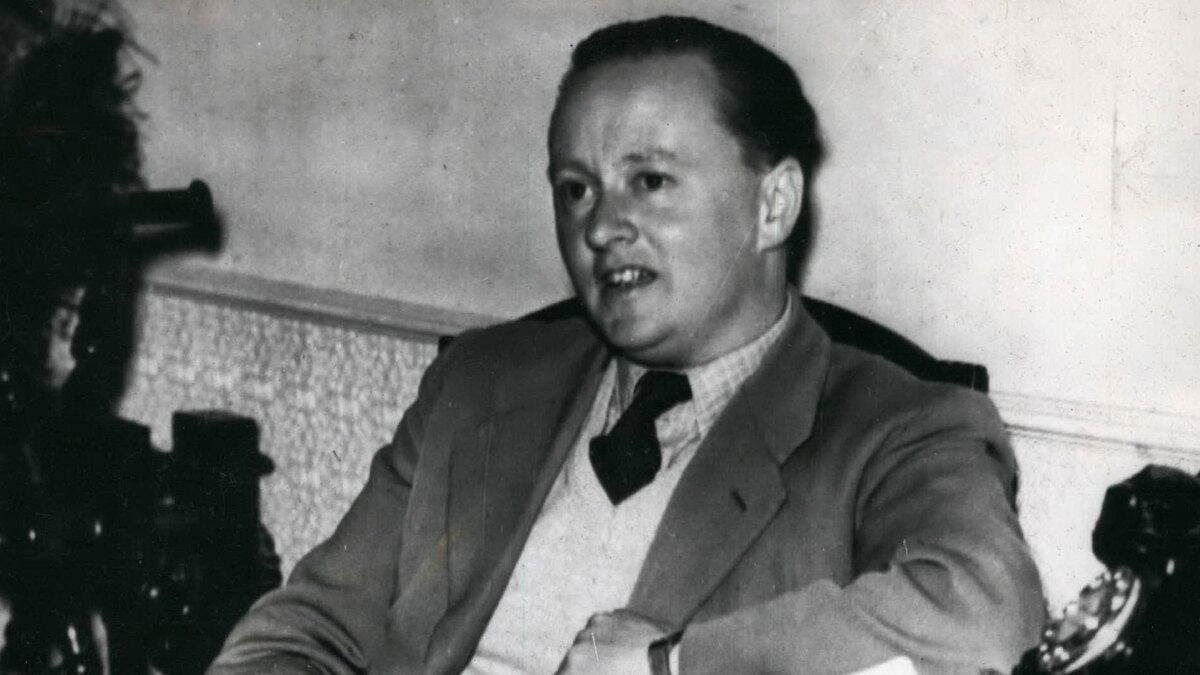He was born female, but Ewan Forbes always identified as a male. So when he was old enough, and about to get married, he had his birth certificate changed to reflect his status as a trans man. Then Ewan’s older brother died, and as a member of an aristocratic Scottish family, he was next in line to become Sir Ewan Forbes of Craigievar.
That’s when a cousin, claiming Ewan was a woman, challenged his right to the honorific, since the law said only males could inherit such titles. This led to a potentially groundbreaking legal case, and a victory for Ewan when the judge ruled that he was “a true hermaphrodite in whom male sexual characteristics predominate.” But because the case was heard in a judge’s chambers and not in front of a jury; because the judge said it was not relevant to any other person; and because the family used its influence to rein in the press, Ewan’s case, which was decided in 1968, remained secret for decades, its potential impact on transgender rights unacknowledged until recently.
“I think public knowledge of the legal precedent in favor of Ewan would have supported the approach that ‘psychological sex’ was the key determinant in being male or female,” says Zoe Playdon, author of The Hidden Case of Ewan Forbes And the Unwritten History of the Trans Experience, a new book about Ewan’s story and the history of transgender rights in the U.K. and U.S. “If Ewan’s case hadn’t been hidden, the world might be a more egalitarian place.”
ADVERTISEMENT
Playdon’s book is an interesting combination of what seems like a can’t-miss Netflix special and a scholarly, deeply passionate recounting of the ways in which the transgender community has been treated by the law and popular culture over the years. Ewan’s story certainly includes plenty of melodramatic elements: Ewan’s sister wrote a letter claiming Ewan was a woman. Shortly before the case was heard the sister reconciled with Ewan but soon after died in a car crash, which allowed the litigious cousin to use the letter as evidence during the hearing. To top it all off, Ewan, a medical doctor, faked evidence involving his sexual organs and committed perjury in order to prove he was a trans man.
“Ewan made the choice to fight back with whatever weapons he had,” says Playdon, who was interviewed via email from her home in Great Britain. “He met [the cousin’s] dishonest claim with evidence of his own, trading fiction for fiction, and in the end, Ewan won. Faced with insistent, persistent, and consistent persecution, the ‘saving lie’ is ethically necessary to preserve an individual’s human agency.”
All of this is, in a sense, a backdrop to a deep dive into the ways in which trans rights, or the lack of them, have been dealt with on personal, political, and medical levels. Playdon, emeritus professor of medical humanities at the University of London, pays particular attention to the split between scientific medicine, which treats trans people as biologically intersex, and what she terms “pseudo medicine,” which calls them mentally ill. She brings up everything from the first gender-confirmation surgery (1931, Danish painter Lili Elbe) to “trans horror films” like Dressed to Kill and The Silence of the Lambs, which portrayed trans people as violent mass murderers. And she comments on current anti-trans movements involving religious fundamentalists who see trans people as a violation of God’s will, many of whom are behind so-called “bathroom bills” that limit trans people to the bathrooms that conform with the sex they were assigned at birth. Even more fascinating is the occasionally fractious relationship between trans and feminist activists, with some of the latter claiming that doctors are deliberately creating a race of artificial women to replace “real women” (think The Stepford Wives).
These feminists, known as TERFs—trans exclusionary radical feminists—are, says Playdon, “led by American right-wing fundamentalists, and are increasingly closely associated with reactionary ethnonationalism. They propagate moral panic about trans people by creating dystopian fantasies [and] spreading misinformation.”
The release of Playdon’s book has also come at what couldn’t be a more newsworthy moment, since the controversy over comedian Dave Chappelle’s Netflix special The Closer has received enormous attention and criticism for its transphobic humor. It's no surprise that Playdon is not a fan of Chappelle’s work.
“Comedy requires shared ethical and emotional values,” she says. “It’s only a joke if both sides find it funny. Otherwise, it’s not humor, it’s humiliation. That is especially the case when the target of the humor is a minority community experiencing systemic discrimination.”
But things aren’t all bad. If trans rights are ranked on a scale of one to 10, one being no rights at all, 10 being total freedom, Playdon believes the majority of people in the U.S. and U.K. are at point six—“Support, where people recognize and work on irrational attitudes, are aware of transphobic climates and work to safeguard trans rights.” And she’s pleased that President Joe Biden has signaled his support for transgender and gender-nonconforming people but feels there has been a “rapid descent” in trans rights under U.K. Prime Minister Boris Johnson, especially since Brexit, which means that Great Britain is no longer bound by European law.
The Hidden Case of Ewan Forbes is, ultimately, about a man who fought for the right to be recognized for what he truly was. But it is also a historical reminder that from approximately the late 19th century through the 1960s, trans people could self-identify, find effective medical support, correct their birth certificates, and live unpersecuted. But starting in the 1950s, the idea that the LGBTQ community could be “cured” by conversion therapy arose, and trans began to be classified as a mental illness. Combined with a politicized homophobia egged on by the far right, equality soon became a thing of the past, creating the legal situation we are all too familiar with today. In this respect, Playdon says she hopes readers of her book “will feel supported in thinking about [its] key question: What do we owe to each other, what values do we espouse, and what kind of world do we want our children to grow into, one of equality, or one of oppression?”






